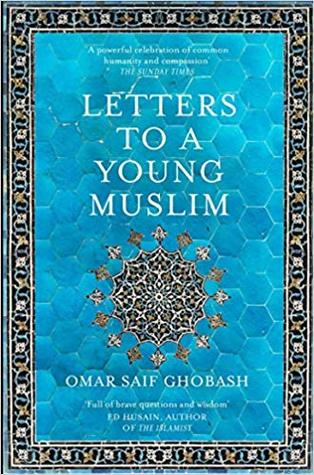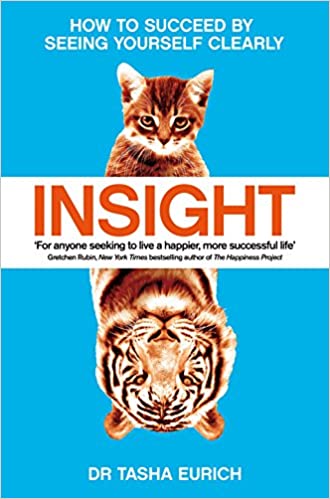تركيز أفضل إنجاز أكبر
Rich Dad’s CASHFLOW Quadrant
Rich Dad’s CASHFLOW Quadrant is a guide to financial freedom. It’s the second book in the Rich Dad Series and reveals how some people work less, earn more, pay less in taxes, and learn to become financially free.
CASHFLOW Quadrant was written for those who are ready to move beyond job security and enter the world of financial freedom. It’s for those who want to make significant changes in their lives and take control of their financial future.
Robert believes that the reason most people struggle financially is because they’ve been spent years in school but were never been taught about money. Robert’s rich dad taught him that this lack of financial education is why so many people work so hard all their lives for money… instead of learning how to make money work for them.
This book will change the way you think about jobs, careers, and owning your own business and inspire you to learn the rules of money that the rich use to build and grow their wealth.
Rich Dad’s Increase Your Financial IQ
Many of our global economic problems started in 1971…when President Richard Nixon took the U.S. off the gold standard. Throughout history, when a government went off the gold standard, an age of turbulence began.
In 1997, Robert’s book Rich Dad Poor Dad stunned readers stating, “Your house is not an asset.” As howls of protest went up around the world, the book went on to become an international bestseller and the #1 personal finance book of all time.
Rich Dad Poor Dad is not a book on real estate. It is a book about the importance of financial education. Rich Dad Poor Dad was written to prepare you and your loved ones for the financial turbulence Robert’s rich dad saw coming.
In 2007, as homes declined in value or were lost to foreclosure, millions of homeowners painfully discovered the wisdom of words of Robert’s rich dad. Today we are all aware that a home can be a liability. Today we know a home can go up or down in value. Today, we all know a person can lose money investing in the stock market. Today we all know our money can go down in value and that even savers can be losers.
This is why financial intelligence is more important today than ever before. In a world of financial turbulence, your best asset is financial IQ.
Rich Dad’s Guide to Investing
Describes how the wealthiest percentage of the population handles investments, and suggests ways to follow the example, including building one’s own business in order to invest as a business, not an individual.
Adventures of Huckleberry Finn
The adventures of a mischievous young boy and his friends growing up in a Mississippi River town in the nineteenth century.
Return of Sherlock Holmes
Ten years after the supposed death of Sherlock Holmes at the Reichenbach Falls, Doyle bowed to popular pressure and breathed new life into his enduring creation. Holmes and Watson return to Baker Street to tackle such famous cases as “The Dancing Men,” “The Solitary Cyclist,” and “The Six Napoleons.”
The Magic of Thinking Big
The Magic of Thinking Big gives you useful methods, not empty promises. Dr. Schwartz presents a carefully designed program for getting the most out of your job, your marriage and family life, and your community. He proves that you don’t need to be an intellectual or have innate talent to attain great success and satisfaction, but you do need to learn and understand the habit of thinking and behaving in ways that will get you there
letters to a young Muslim
In a series of personal letters to his sons, Omar Saif Ghobash offers a short and highly readable manifesto that tackles our current global crisis with the training of an experienced diplomat and the personal responsibility of a father. Today’s young Muslims will be tomorrow’s leaders, and yet too many are vulnerable to extremist propaganda that seems omnipresent in our technological age. The burning question, Ghobash argues, is how moderate Muslims can unite to find a voice that is true to Islam while actively and productively engaging in the modern world. What does it mean to be a good Muslim?
What is the concept of a good life? And is it acceptable to stand up and openly condemn those who take the Islamic faith and twist it to suit their own misguided political agendas? In taking a hard look at these seemingly simple questions, Ghobash encourages his sons to face issues others insist are not relevant, not applicable, or may even be Islamophobic. These letters serve as a clear-eyed inspiration for the next generation of Muslims to understand how to be faithful to their religion and still navigate through the complexities of today’s world. They also reveal an intimate glimpse into a world many are unfamiliar with and offer to provide an understanding of the everyday struggles Muslims face around the globe.”
How to succeed by seeing yourself clearly
Research shows that self-awareness is the meta-skill of the 21st century – the foundation for high performance, smart choices, and lasting relationships. Unfortunately, we are remarkably poor judges of ourselves and how we come across, and it’s rare to get candid, objective feedback from colleagues, employees, and even friends and family. We can ALL learn to be more self-aware.
Integrating hundreds of studies with her own research and work in the Fortune 500 world, organizational psychologist Dr Tasha Eurich shatters conventional assumptions about what it takes to truly know ourselves – like why introspection isn’t a bullet train to insight, how experience is the enemy of self-knowledge, and just how far others will go to avoid telling us the truth about ourselves. Through stories of people who’ve made dramatic self-awareness gains, she offers surprising secrets, techniques and strategies to help readers do the same – and therefore improve their work performance, career satisfaction, leadership potential, relationships, and more.
At a time when self-awareness matters more than ever, Insight is the essential playbook for surviving and thriving in an unaware world.
Still Me Jojo Moyes
Louisa Clark arrives in New York ready to start a new life, confident that she can embrace this new adventure and keep her relationship with Ambulance Sam alive across several thousand miles. She steps into the world of the superrich, working for Leonard Gopnik and his much younger second wife, Agnes. Lou is determined to get the most out of the experience and throws herself into her new job and New York life.
As she begins to mix in New York high society, Lou meets Joshua Ryan, a man who brings with him a whisper of her past. Before long, Lou finds herself torn between Fifth Avenue where she works and the treasure-filled vintage clothing store where she actually feels at home. And when matters come to a head, she has to ask herself: Who is Louisa Clark? And how do you find the courage to follow your heart—wherever that may lead?
Funny, romantic, and poignant, Still Me follows Lou as she discovers who she is and who she was always meant to be—and learns to live boldly in her brave new world.
Emotional Intelligence 2.0 (hard cover)
Tuesdays with Morrie – An Old Man, A Young Man, and Life’s Greatest Lesson
Maybe it was a grandparent, or a teacher or a colleague? Someone older, patient and wise, who understood you when you were young and searching, and gave you sound advice to help you make your way through it? For Mitch Albom, that person was Morrie Schwartz, his college professor from nearly twenty years ago.
Maybe, like Mitch, you lost track of this mentor as you made your way, and the insights faded. Wouldn’t you like to see that person again, ask the bigger questions that still haunt you?
Mitch Albom had that second chance. He rediscovered Morrie in the last months of the older man’s life. Knowing he was dying of ALS – or motor neurone disease – Mitch visited Morrie in his study every Tuesday, just as they used to back in college. Their rekindled relationship turned into one final ‘class’: lessons in how to live.
Tuesdays with Morrie is a magical chronicle of their time together, through which Mitch shares Morrie’s lasting gift with the world.












